

Mary Makes it Easy
Besetzung
Crew
Folgen
Staffel 3
4. September 2023
Folge 1 (1)

Folge 2 (2)

Folge 3 (3)

Folge 4 (4)

Folge 5 (5)
Bilder
Empfohlene Serien
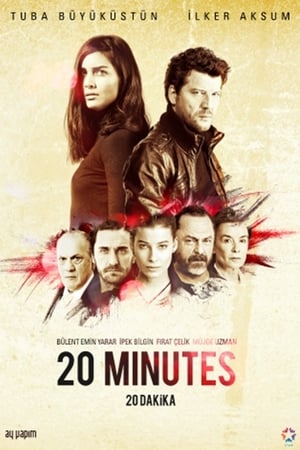 20 Minutes1. Januar 2013
20 Minutes1. Januar 2013An innocent pastrycook Melek gets accused of injuring an important politician's son. Her loving husband Ali wants to help his wife to escape from prison.
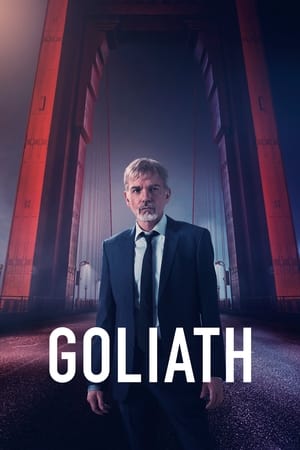 Goliath13. Oktober 2016
Goliath13. Oktober 2016Billy McBride – einst ein erfolgreicher Anwalt – verbringt heute mehr Zeit an der Theke als bei Gericht. Dennoch lässt er sich widerwillig auf einen Fall ein und ermittelt fortan gegen den größten Mandanten der Kanzlei, die er einst mitbegründet hat. Billy und sein Team decken eine tödliche Verschwörung auf, und kämpfen daraufhin in einem Prozess um Leben und Tod gegen den ultimativen Goliath.
 1000 millones18. Juni 2002
1000 millones18. Juni 2002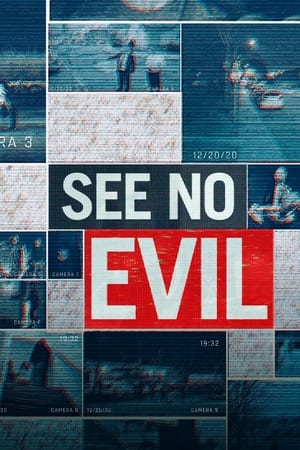 Das Böse im Blick - Augenzeuge Kamera17. Februar 2015
Das Böse im Blick - Augenzeuge Kamera17. Februar 2015Every second of every day, millions of Americans are caught on CCTV. Living in a surveillance society means everyday actions are caught on camera, mostly of honest citizens going about their daily lives. But a few are guilty of unspeakable crimes. Video doesn't discriminate; criminals also end up on film. See no Evil is a groundbreaking series that presents dramatic stories about how real crimes are solved with the aid of surveillance cameras. Police reveal how CCTV footage has unlocked the answer to cases that otherwise might have remained unsolved- leaving dangerous killers at large. The series features real footage and dramatic reconstruction, combined with first-hand testimony from police, witnesses, and families.
 NOVA3. März 1974
NOVA3. März 1974PBS' premier science series helps viewers of all ages explore the science behind the headlines. Along the way, NOVA demystifies science and technology, and highlights the people involved in scientific pursuits.
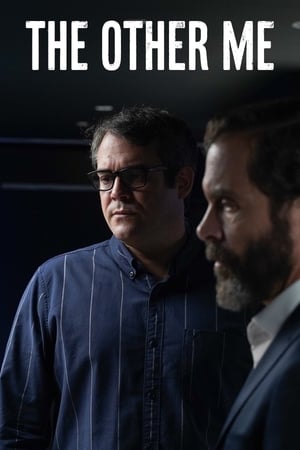 The Other Me22. Juni 2019
The Other Me22. Juni 2019A series of murders alarm the police authorities, as strange symbolisms are traced to every crime scene. The eccentric professor of criminology Dimitris Lainis is asked to shed some light on the mystery.
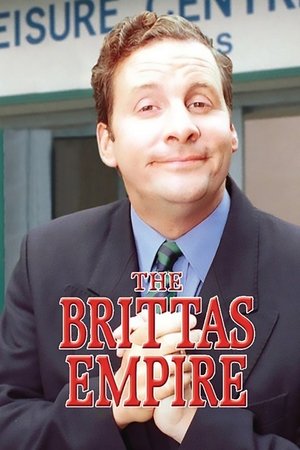 The Brittas Empire3. Januar 1991
The Brittas Empire3. Januar 1991The Brittas Empire is a British sitcom created and originally written by Andrew Norriss and Richard Fegen. Chris Barrie plays Gordon Brittas, the well-meaning but incompetent manager of Whitbury New Town Leisure Centre. The show ran for seven series and 53 episodes — including two Christmas specials — from 1991 to 1997 on BBC1. Norriss and Fegen wrote the first five series, after which they left the show. The Brittas Empire enjoyed a long and successful run throughout the 1990s, and gained itself large mainstream audiences. In 2004 the show came 47th on the BBC's Britain's Best Sitcom poll, and all series have been released on DVD. The creators Andrew Norriss and Richard Fegen often combine farce with either surreal or dramatic elements in episodes. For example in the first series, the leisure centre prepares for a royal visit, only for the doors to seal, the boiler room to flood and a visitor to become electrocuted. Unlike the traditional sitcom, deaths were quite common in The Brittas Empire.
 Selena + Restaurant2. Mai 2024
Selena + Restaurant2. Mai 2024Selena Gomez heads out of her home kitchen and into the kitchens of some of LA’s hottest restaurants, with chefs teaching and testing Gomez to see how quickly she can learn the ropes with the ultimate goal of creating a dish good enough to make each restaurant’s menu.
 Eine Hochzeit mit Folgen4. Februar 2019
Eine Hochzeit mit Folgen4. Februar 2019An uncharacteristic slip-up at her daughter's wedding leads a married woman to a most unexpected dilemma.
 COVID-19: World in Danger1. Juni 2020
COVID-19: World in Danger1. Juni 2020In Spring 2020, the world had to dramatically react to Coronavirus. A detailed look at how the globe politically and socially responded to the devastating pandemic.
 TV Cultural Center - Blazing Sonata7. Dezember 2011
TV Cultural Center - Blazing Sonata7. Dezember 2011Based on an original work by Kim Dong-in, this is about the genius pianist Baek Seong-soo who was inspired by fire.
 A Different View8. Dezember 2017
A Different View8. Dezember 2017Insight on world affairs by F. William Engdahl
 Ek Mahal Ho Sapno Ka
Ek Mahal Ho Sapno KaEk Mahal Ho Sapno Ka is a Hindi language Indian soap opera that aired on Sony TV. It was the first Hindi fiction series to reach 1000 episodes and is one of the longest television serials ever made in Indian television. The show was also aired in Gujarati on ETV Gujarati called as Sapna Na Vavetar.
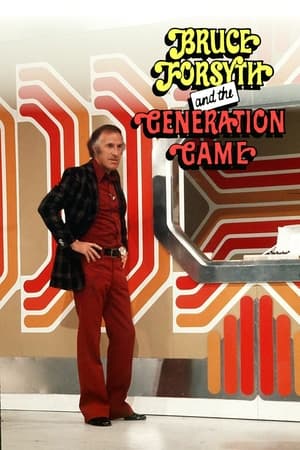 The Generation Game2. Oktober 1971
The Generation Game2. Oktober 1971The Generation Game was a British game show produced by the BBC in which four teams of two competed to win prizes. The programme was first broadcast in 1971 under the title Bruce Forsyth and the Generation Game and ran until 1982, and again from 1990 until 2002. The show was based on the Dutch TV show Een van de acht, "One of the Eight", the format devised in 1969 by Theo Uittenbogaard for VARA Television. Mrs. Mies Bouwman - a popular Dutch talk show host and presenter of the show - came up with the idea of the conveyor belt. She had seen it on a German programme and wanted to incorporate it into the show. Another antecedent for the gameshow was 'Sunday Night at the London Palladium' on ATV, which had a game called Beat the Clock, taken from an American gameshow. It featured married couples playing silly games within a certain time to win prize money. This was hosted by Bruce Forsyth from 1958, and he took the idea with him when he went over to the BBC. During the 1970s, gameshows became more popular and started to replace expensive variety shows. Creating new studio shows was cheaper than hiring a theatre and paying for long rehearsals and a large orchestra, and could secure a similar number of viewers. With less money for their own productions, a gameshow seemed the obvious idea for ITV. As a result many variety performers were recruited for gameshows. The BBC, suffering poor ratings, decided to make its own gameshow. Bill Cotton, the BBC's Head of Light Entertainment, believed that Bruce Forsyth was best for the job. For years, The Generation Game was one of the strong shows in the BBC's Saturday night line-up, and became the number one gameshow on British television during the 1970s, regularly gaining over 21 million viewers. However, things were about to change. LWT, desperate to end the BBC's long-running ratings success on a Saturday night, offered Forsyth a chance to change channel to host The Big Night.
 Das verschwundene Zimmer11. Dezember 2006
Das verschwundene Zimmer11. Dezember 2006Im Zuge eines mysteriösen Mordfalls bekommt Detective Joe Miller einen Schlüssel zugesteckt. Noch ahnt er nicht, dass das sein ganzes Leben verändern soll, denn der Schlüssel birgt ein unglaubliches Geheimnis: Jede beliebige Tür lässt sich mit ihm öffnen und stets befindet sich dahinter das Zimmer 10 des Sunshine Motels. Verlässt man dieses Zimmer, gelangt man genau an den Ort, den man sich gerade in seiner Fantasie vorstellt. Neben diesem Schlüssel existieren noch weitere so genannte "Objekte", die ebenfalls unglaubliche Eigenschaften besitzen. Einige höchst skrupellose "Sammler" sind auf der Jagd nach diesen Objekten - und der Schlüssel steht ganz oben auf ihrer Liste.
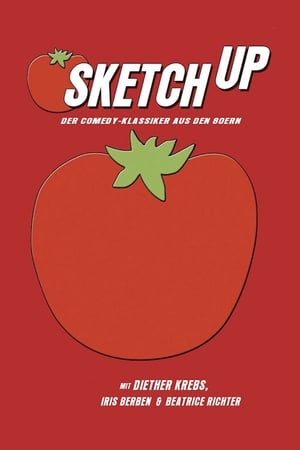 Sketch Up24. September 1984
Sketch Up24. September 1984Halbstündige Sketch-Comedyshow mit Diether Krebs und Beatrice Richter. Die für damalige Verhältnisse meist kurzen Sketche mit den beiden Komikern lebten von Tempo, Mut zur Absurdität und nicht zuletzt von grandiosen, oft völlig entstellenden Masken, deren Basisbestandteile schiefe Zähne und dicke Brillengläser waren. In der Regel guckte einer der beiden nach der Pointe perplex oder einfach blöd in die Kamera, wozu eine Kapelle einen schiefen Klang ertönen ließ. Zum Ritual der Show gehörte es, dass die beiden Hauptdarsteller in der Atmosphäre einer plüschigen Bar auftraten und das Saalpublikum begrüßten und am Ende auch verabschiedeten, obwohl sie dort keinen einzigen Sketch live aufführten – diese waren alle gefilmt.
Ähnliche Serien
| Ursprungsland | CA |
| Original Sprache | en |
| Produktionsländer | |
| Produktionsfirmen | CTV(CA) |
| Produktionsfirmen |



